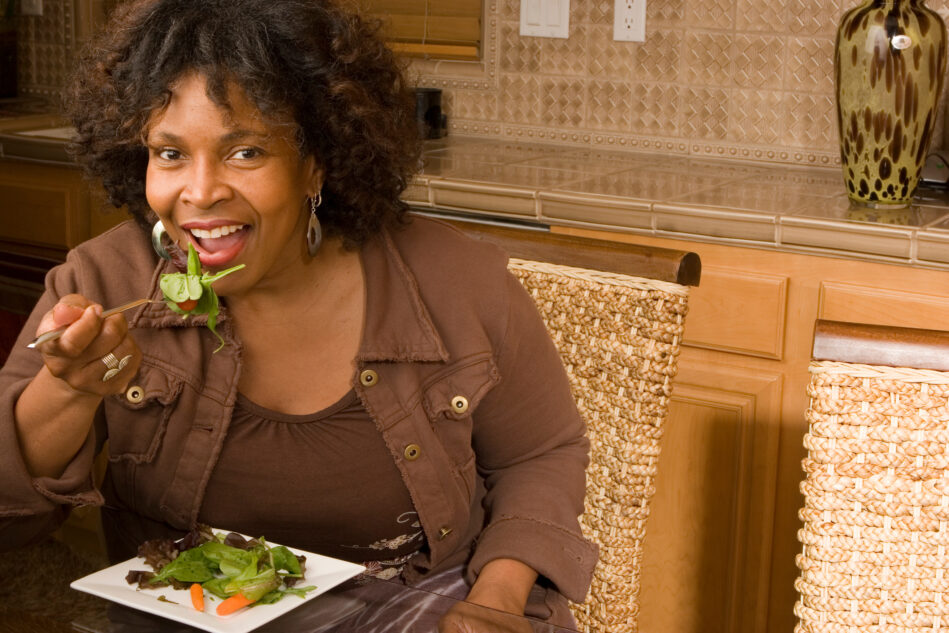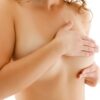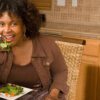Certain risk factors for breast cancer, such as age and family history, are beyond our control. But changing our diet — to eliminate certain foods and add others — can make a big difference. A healthy diet can help keep weight down, build a body’s immunity, and help decrease the risk of breast cancer.
5 Golden Food Rules For Protecting Against Breast Cancer
Recent studies have continued to draw the link between breast cancer reduction and diet. Here are five helpful rules to follow:
1. Eat More Fresh Fruits and Vegetables
Kelly Turner, PhD, a researcher in the field of integrative oncology, interviewed more than 100 women from 10 countries and studied more than 1,000 cases of cancer remission for her book Radical Remission: Surviving Cancer Against All Odds (HarperCollins, 2014). The women credited diet and lifestyle changes as the reason they didn’t have a cancer recurrence. “If you’re eating fresh, raw or lightly steamed vegetables, you’re helping your body fight all sorts of diseases and keeping your immune system healthy,” Turner says. The connection? Foods rich in phytochemicals (chemical compounds that occur naturally in plants) help to prevent the cellular damage and mutations that cause many different types of cancers, including breast cancer.
A number of studies have demonstrated this connection:
- A study published online on July 2018 in the International Journal of Cancer found that women who have higher intakes of fruits and vegetables, especially cruciferous (broccoli, for example) and yellow and orange vegetables, may have a reduced risk of breast cancer compared to those who eat fewer fruits and vegetables. Researchers from the Harvard T.H. Chan School of Public Health analyzed diet questionnaires from about 182,000 women participating in the Nurses’ Health Studies over 30 to 40 years. Women who ate 5 ½ daily servings of fruits and vegetables had an 11% reduced risk of breast cancer compared to women who only consumed 2 ½ or fewer servings each day. High intake of fruits and vegetables appeared to be particularly protective against more aggressive tumors.
- A 2019 study in the Journal of Clinical Oncology found that postmenopausal women who ate a diet rich in fruits, vegetables and grains and lower in fat lowered their risk of dying of breast cancer. Researchers randomly assigned about 49,000 women to either their usual diet or a diet high in fruits, vegetables and grains and a fat intake lowered to 20% of daily calories. After nearly 20 years, women on the high fruits and vegetables diet had a 21% reduced risk of dying from breast cancer. They also had a 15% reduced risk of dying from any cause. As a bonus, they lost an average of 3% of their body weight.
- A study published in the Journal of Clinical Endocrinology & Metabolism revealed that a tomato-rich diet may help reduce the risk of breast cancer in postmenopausal women. For 10 weeks, the study participants ate tomato products with a total of at least 25 mg of lycopene a day. As a result, their levels of adiponectin (a hormone that regulates blood sugar and fat metabolism in the body) increased by nearly 10%. Higher levels of this hormone have been associated with a reduced risk of breast cancer.
Women can reduce their breast cancer risk by 14% by replacing one daily serving of meat with a serving of fish, nuts, legumes or poultry, according to research at the Harvard T.H. Chan School of Public Health.
2. Less Red Meat, More Chicken and Fish
Research continues to demonstrate a strong link between saturated fat and breast cancer.
- In a 2019 study published in the International Journal of Cancer, researchers reported an association between meat consumption and the risk of breast cancer. After reviewing the dietary patterns of 42,000 women who participated in the Sister Study, a National Institutes of Health study of women who had a sister with breast cancer, researchers determined women who consumed the most red meat had a 23% higher risk of invasive breast cancer than those who ate the least red meat. And those who ate the most poultry had a 15% lower risk of invasive breast cancer than those who ate the least amount of poultry.
- A study published in the Journal of the National Cancer Institute found that a diet high in saturated fat — found in red meat and full-fat dairy products — was associated with an increase in two types of breast cancer. After studying the diets of more than 300,000 women, researchers revealed that women who ate more saturated fats and fewer monounsaturated fats (found in nuts and olive oil) and polyunsaturated fats (found in seafood, fish oil and canola oil) significantly increased their risk of the disease.
- Research from the Harvard School of Public Health and published in the British Medical Journal found a link between high consumption of red meat and breast cancer in young women. Researchers studied the diets of 89,000 women aged 24 to 43 over a 20-year period. Women who ate 1½ servings of red meat a day appeared to have a 22% higher risk of breast cancer than those who only ate one serving a week. Each additional daily serving of red meat led to another 13% increase in breast cancer risk. The research also found that women could reduce their breast cancer risk by 14% by replacing one daily serving of meat with a serving of fish, nuts, legumes or poultry.
3. Go Easy on the Alcohol
Women who like to kick back with a daily glass of wine may need to rethink that habit. “Our latest research shows that even a half a drink or 1 drink a day increases a woman’s risk of breast cancer,” says Walter Willett, MD, chair of the department of nutrition and epidemiology at Harvard T.H. Chan School of Public Health and the researcher who established the landmark Nurses’ Health Study 2 and Nurses’ Health Study 3, which is currently investigating the role of nutrition in breast cancer in women of all ages.
Alcohol raises the blood level of insulin-like growth factors — or IGFs — which, like estrogen, promote the growth of breast cancer, and impairs absorption of nutrients such as folate, a B-complex vitamin (The National Cancer Institute offers more information about the connection between alcohol and breast cancer). However, women who take a daily folic acid supplement of at least 400 mcg or add folate-rich foods to their diets, such as citrus fruits and dark, leafy greens, may help mitigate this risk, say researchers connected with the Nurses’ Health Study.
Patients with higher levels of vitamin D in their blood at the time of breast cancer diagnosis had about half the fatality rate of those with lower vitamin D levels.
4. Get Your Sunlight and Your Vitamins
A recent study in PLoS One found that high blood levels of vitamin D appear to be protective against breast cancer. Researchers analyzed data from multiple clinical trials that collected blood samples from about 5,000 women age 55 or older. Measuring vitamin D levels in nanograms per milliliter of blood (ng/ml) the researchers determined that women with 60 ng/ml or higher blood levels of vitamin D had an 82% lower rate of breast cancer than those whose vitamin D levels were 20 ng/ml or lower. Overall, the risk declined with higher levels of vitamin D. Principal investigator Cedric F. Garland, DrPH, of the UC San Diego Department of Family Medicine and Public Health, said in a release that this research reports the strongest association yet between serum vitamin D and reduction in risk of breast cancer.
A study published in Anticancer Research found that patients with higher levels of vitamin D in their blood at the time of breast cancer diagnosis had about half the fatality rate of those with lower vitamin D levels. The meta-analysis combined data from more than 4,500 breast cancer patients from five observational studies over a nine-year period. Experts believe that vitamin D activates a protein that blocks aggressive cell division in breast cancer patients.
Sunlight is the best source of vitamin D. But you can also find it in supplements and in certain foods, such as:
- swordfish (566 IU per 3-ounce serving)
- wild salmon (447 IU per 3-ounce serving)
- vitamin D-fortified orange juice (137 IU per 1 cup serving)
- vitamin D-fortified milk (115-124 IU per 1 cup serving)
Taking a daily multivitamin can also help to protect against breast cancer and to possibly reduce the risk in women who consume alcohol, says Dr. Willett. However, women who are undergoing chemotherapy, radiation or hormone or targeted therapies should check with their doctor before taking herbal or antioxidant supplements, such as vitamins C and E. They may decrease the effectiveness of traditional treatments and interfere with how the body metabolizes them. Experts believe this is because the supplements may also protect tumor cells — not just healthy cells.
Not all experts agree that supplements have a role in cancer protection. Researchers looked at responses from almost 31,000 adults who answered questions on dietary supplement use from the National Health and Nutrition Examination Survey. The adults were also followed for an average of 6.1 years. Results, published in the Annals of Internal Medicine, found that the use of dietary supplements was not associated with a reduction in death. Intake of certain vitamins and minerals at recommended levels was associated with a reduction in all-cause or cardiovascular mortality, but only when those nutrients were obtained from food. Also, excess calcium intake was associated with a higher risk of cancer death.
“Our results support the idea that, while supplement use contributes to an increased level of total nutrient intake, there are beneficial associations with nutrients from foods that aren’t seen with supplements,” lead author Fang Fang Zhang, M.D., Ph.D., associate professor at Tufts University’s Friedman School of Nutrition Science and Policy, said in a statement. It’s always a good idea to check with your doctor before taking any supplements.
5. Maintain a Healthy Weight
As an overall precaution, women should keep their weight down, particularly in the postmenopausal years. Obesity is associated with a higher risk of breast cancer in postmenopausal women and with worse disease outcomes in women of all ages. According to the National Cancer Institute, postmenopausal women who are obese have a 20% to 40% increase in the risk of breast cancer compared to women who are normal weight.
Some studies show even greater risk for postmenopausal women who gain weight. In a report in the journal The Oncologist, researchers analyzed the results of several large trials that looked at the impact of body weight on breast cancer risk. The studies reported a direct association between adult weight gain and postmenopausal breast cancer risk. The researchers concluded that compared with normal-weight women, the risk for breast cancer is around 50% higher for postmenopausal women who are overweight, and the risk is more than double for those who are obese. Fat tissue is the largest source of estrogen in postmenopausal women. Therefore, women who gain weight have higher levels of estrogen in their body — a risk factor for breast cancer.
“If you’re overweight after menopause, losing that weight can significantly reduce your risk of breast cancer,” says Dr. Willett.






